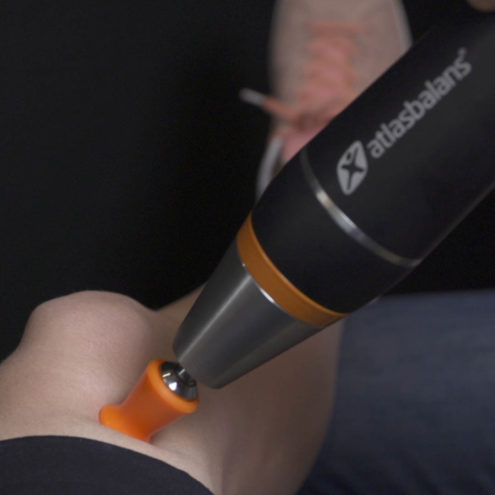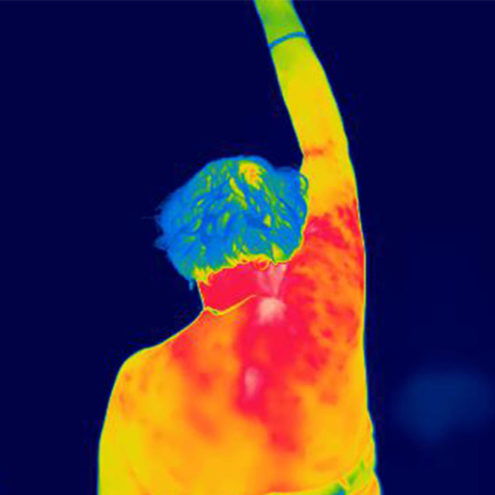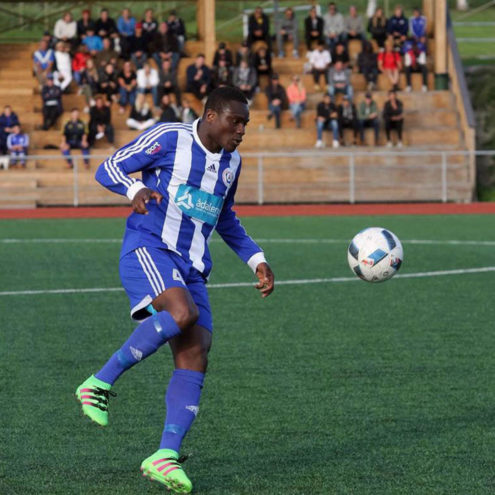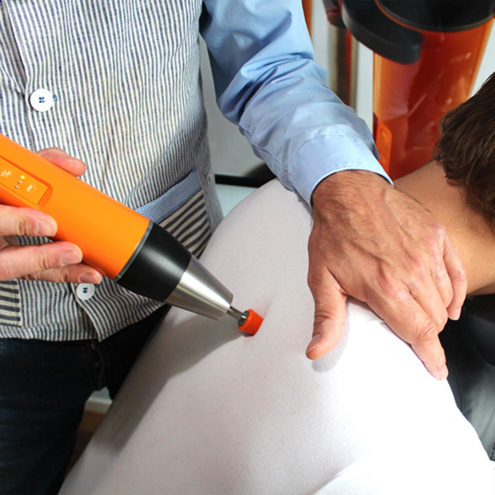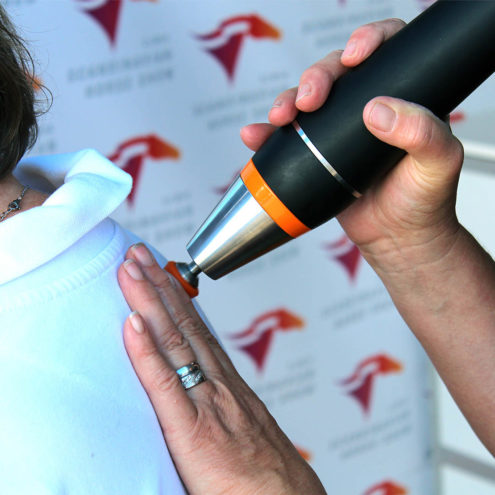Muscle tear in the hip

What is a muscle tear in the hip?
A hip muscle tear occurs when the muscle fibers (muscle cells) in the hip muscles are damaged. The difference between a stretch, a partial tear and a total tear depends on the degree of damage and how many muscle fibers have been affected. A stretch means that the muscle has been stretched past its normal capacity. A partial tear means that some of the muscle fibers have broken and a total tear means that the whole muscle has broken.
What causes hip muscle tear?
There are several possible causes of hip muscle tear. One of the most common causes is intense or incorrect exercise, especially activities such as running or cycling that put strain on the hip muscles. Fast and explosive movements, such as in football, can also cause hip muscle tears. Ageing and general weakness can make the hip muscles more prone to injury. Falls and accidents that cause a sudden strain on the hip muscles can also lead to ruptures. It is important to note that the causes can vary and that it is important to consult a doctor or a fascia treatment specialist to determine the specific cause of your hip muscle rupture.
Symptoms of muscle tear in the hip
The typical symptoms of hip muscle tear include pain, swelling of the affected muscles and difficulty in performing certain movements. The pain may be perceived as intense or throbbing. Swelling often occurs in the injured area and is tender to the touch. Depending on the extent of the injury, it may also be difficult to walk or to perform movements that require active use of the hip muscles.
What should you think about when you have a muscle tear in the hip?
When you have a hip muscle tear, there are a few things you should consider to facilitate healing and avoid further damage. It is important to avoid activities and movements that cause pain or discomfort in the injured area so as not to overload the muscle. Applying cold to the injured area can help reduce swelling and relieve pain. Giving the hip enough rest and avoiding overexertion is also important to allow the muscle to heal. It is also wise to consult a doctor or physiotherapist for an individual assessment and recommended treatment.
Treatment of muscle tear in the hip
Treatment methods for hip muscle tears can vary depending on the degree of injury. For minor tears, self-care, including the RICE (Rest, Ice, Compression, Elevation) method may be sufficient. Taking painkillers and anti-inflammatory drugs can also help relieve symptoms. For more serious ruptures, you may need to seek professional care. Physiotherapy may be needed to restore strength and mobility to the hip. In some cases, surgery may be necessary to repair a tear.
Fascia treatment for muscle tear in the hip
Fascia treatment can be an excellent complement to traditional treatment for a hip muscle tear. Fascia is the network of connective tissue that surrounds and connects muscles, ligaments and other structures in the body. Working on the fascia can help reduce tension, improve blood circulation and promote healing. It is important to consult a certified fascia treatment specialist to get advice based on your specific situation and symptoms.
Frequently asked questions about hip muscle tear
How long does it take to recover from a hip muscle tear?
The recovery time for a hip muscle tear can vary depending on the severity of the injury and the health of the person affected. Generally speaking, a minor tear can heal within a few weeks while a more serious tear can take several months. Undergoing fascial treatment can help speed up recovery by promoting healing and restoring function to the hip.
Can I continue to exercise with a muscle tear in my hip?
It depends on the severity of the injury and the individual’s specific situation. Mild to moderate tears can often be managed with adapted exercise routines that do not strain the injured hip. However, it is important to avoid activities and movements that cause pain or discomfort to the hip and to gradually return to exercise under the supervision of a physiotherapist.
How can fascia treatment help with a muscle tear in the hip?
Fascia treatment can help reduce tension and increase blood circulation to the injured area. This encourages the body to heal itself. Working on the fascia can help restore function to the injured hip more quickly.
Taking care of a hip muscle tear requires time, patience and proper treatment. By combining your rehabilitation with fascia treatment, you can maximize your recovery and prevent recurrent injuries in the future.
 Search
Search











